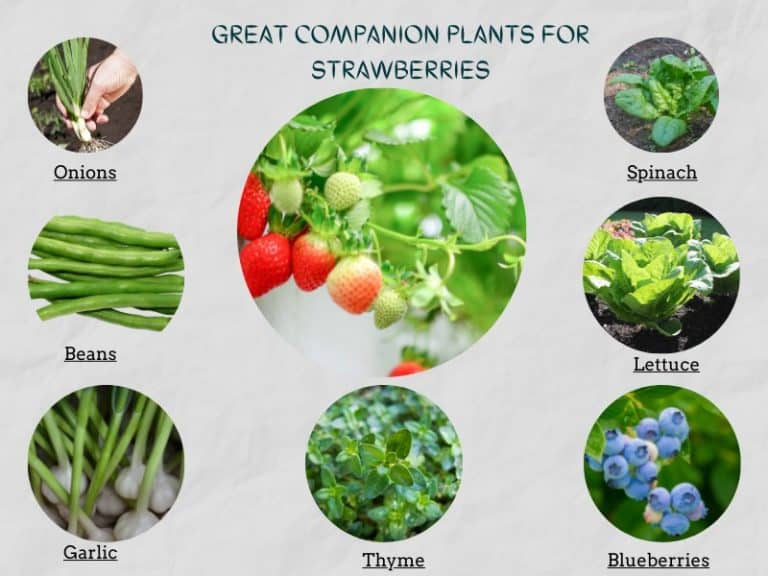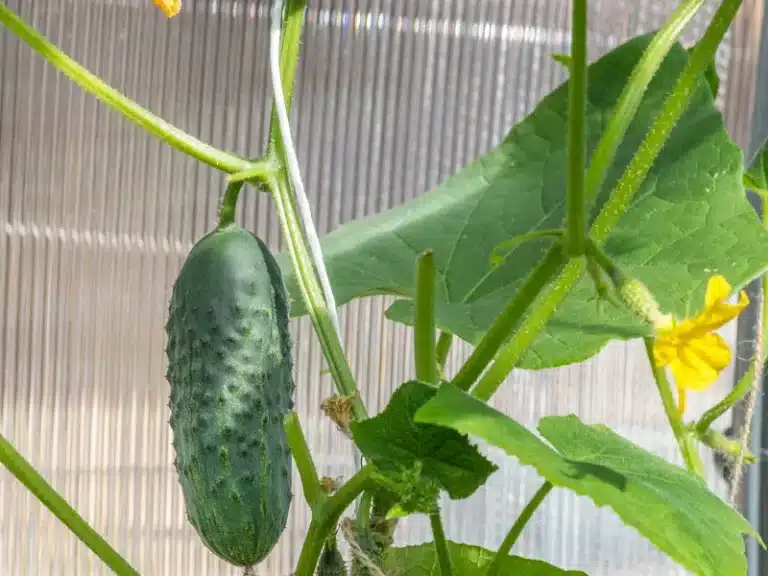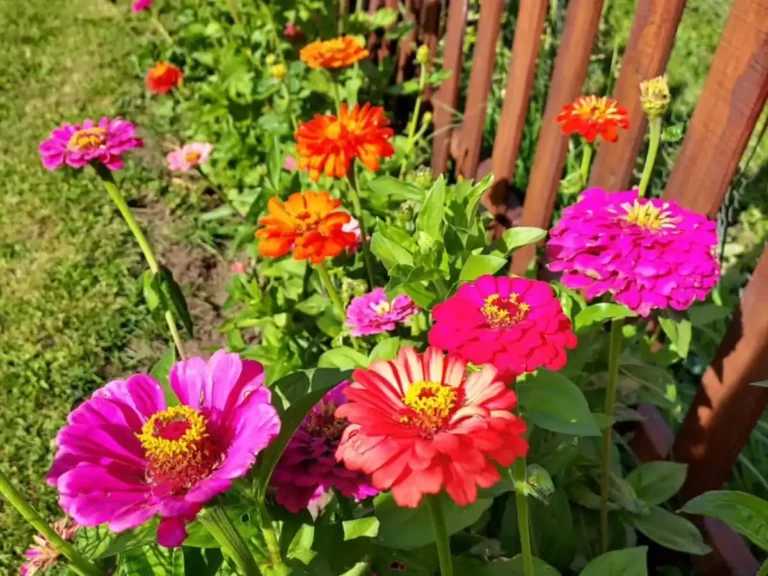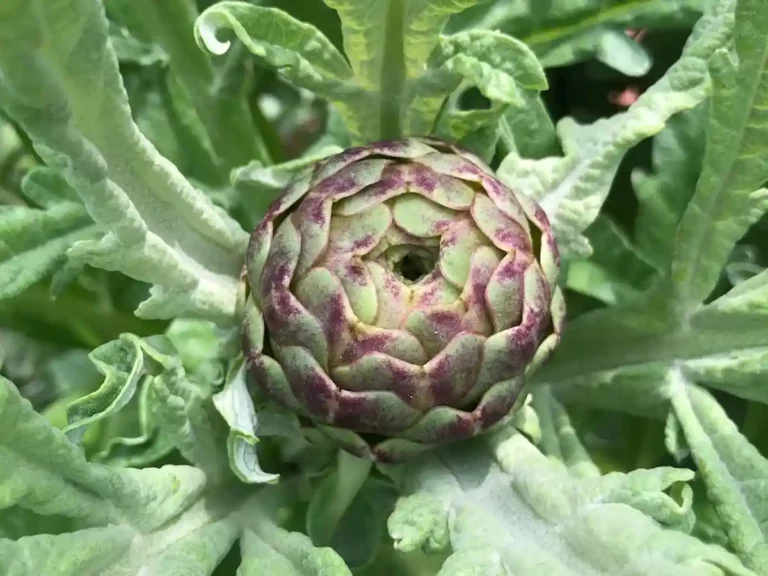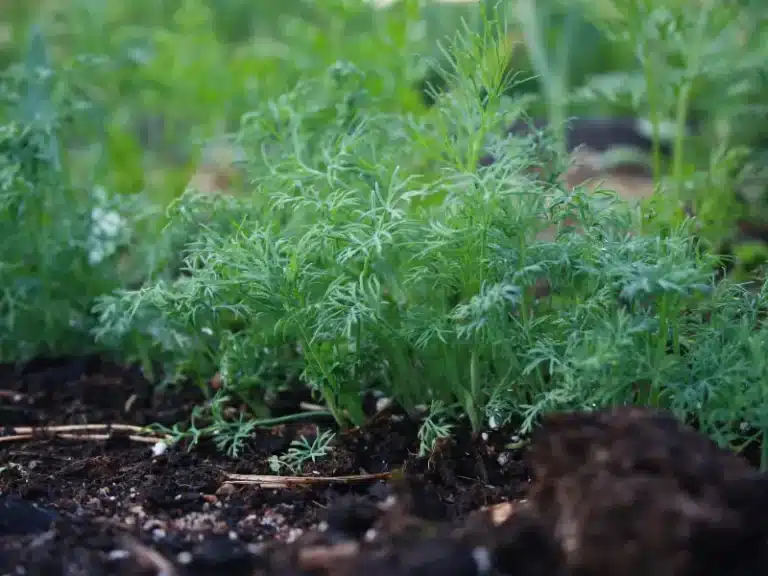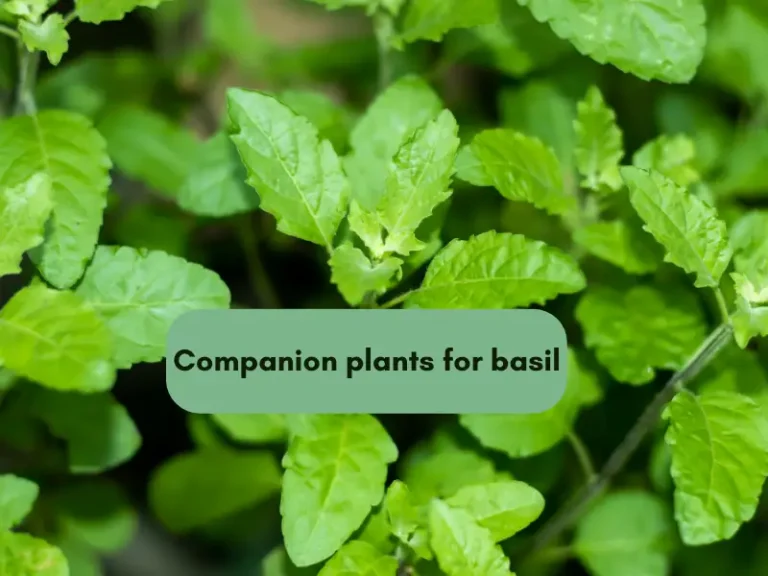Thyme Companion Plants – 9 Pairs That Work
Thyme is an aromatic herb that we all love for its unforgettable flavor in various dishes. If you’re like me, you don’t like picking these herbs at the grocery store. Instead, you want your own homegrown, organic herbs.
So, I like growing my own thyme, but I can’t just plant it on its own. I’ll have too much of it. Interplanting and paring thyme with other herbs and vegetables is ideal. So, what companion plants do I recommend?
Good companions for thyme include brassicas, shallots, eggplant, tomatoes, corn, lavender, strawberries, rosemary, and sage. Avoid pairing thyme with chives, cilantro, and basil, as these do not prefer similar growing conditions as thyme.
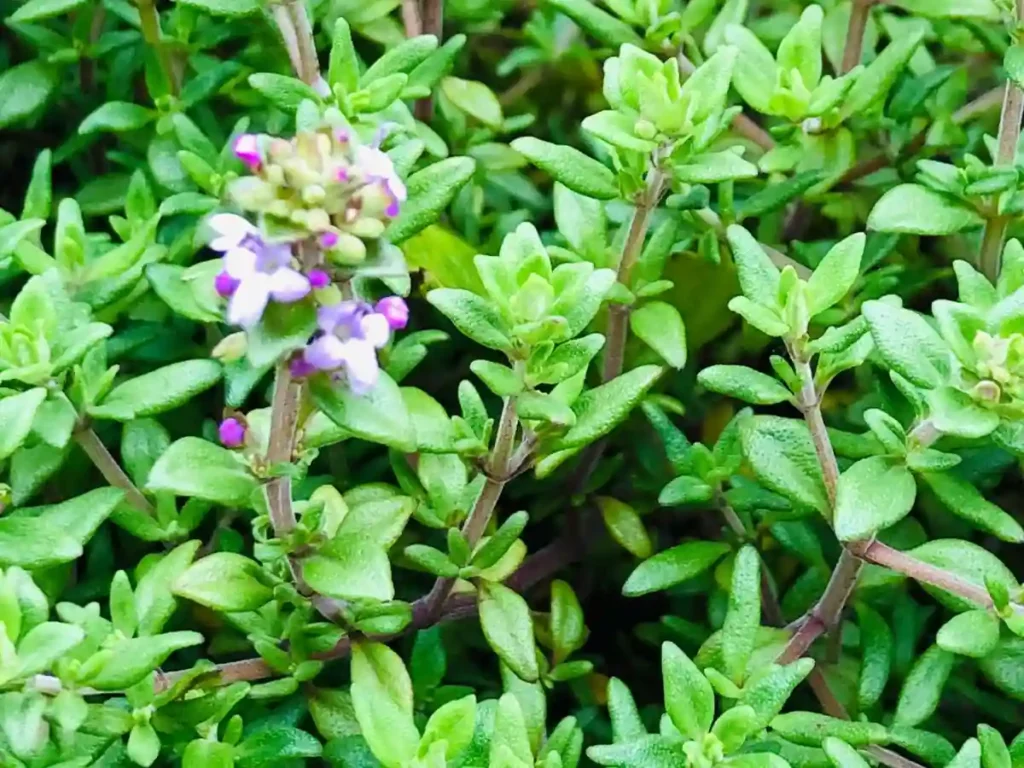
Below, I’ve explained why the select companions are suitable and why you should avoid interplanting thyme with some plants – all from a master gardener’s point of view.
Best Companion Plants for Thyme
Thyme can be interplanted with different types of plants, including vegetables, fruits, and herbs. These companion plants share similar environmental preferences with thyme or benefit from its ability to deter pests and attract beneficial insects.
I like the fact that thyme requires very little garden space to flourish. It carries a pack of benefits, too: deters bugs, attracts beneficial insects, and provides ground cover.
The rule of thumb is to select plants that won’t compete too hard with thyme for nutrients, sunlight, water, and other resources. I’ve seen thyme struggle when interplanted with tall plants or heavy feeders.
That said, here are some of the best plants to pair with thyme:
Brassicas
Thyme has a strong scent that deters common brassica pests such as cabbage loopers, cabbage worms, and aphids. Planting it in your brassica garden will help protect the vegetable plants from these pets.
Thyme doesn’t need much space to thrive. It nicely fills in narrow gaps in my brassica garden, so I don’t have to sacrifice too much of the space for vegetables.
Cabbage, for example, isn’t a tall plant, so it makes sense to grow it together with thyme.
Brassicas produce beautiful flowers but will still need insect pollinators.[1] The beautiful blooms on thyme also attract beneficial insects to the garden, which help to pollinate the brassicas. However, note that most thyme varieties only start flowering from the second season onwards.
Examples of brassicas to pair with thyme are:
- Cabbage
- Kale
- Kohlrabi
- Brussel sprouts
- Cauliflower
Shallots
Shallots are also good companion plants for thyme since they boost flavor when paired with the Mediterranean herb. Moreover, thyme is also a pest deterrent and will keep shallots free of worms and aphids.
Meanwhile, Crimson thyme is a variety known to attract hoverflies. This beneficial insect feeds on common shallot pests such as aphids, thrips, and onion maggots.
Worley’s pro tip: If you have a small garden, consider complementing your shallots with thyme to save on space, as thyme doesn’t need much space to flourish.
Eggplant
Thyme contains thymol, a mixture of compounds with insecticidal properties. Eggplants are highly vulnerable to moths and aphids. By planting eggplants alongside thyme, you can keep these pesky pests away.
Eggplants are also occasionally vulnerable to a fungal disease called phomopsis blight (see details by Dr. Ronald French of Texas A&M here.)
This disease attacks the eggplant fruits and stems, causing the latter to break off. You can protect eggplants from this disease by inter-planting them with thyme, as thymol also has anti-fungal properties.
Tomatoes
To boost the flavor of your tomatoes, consider using thyme as a companion plant. This fragrant herb will also deter tomato hornworms from invading the tomatoes.
Hornworms feed on tomato foliage, limiting the plant’s ability to photosynthesize.
Corn
Thyme has a potent odor that deters corn pests like corn earworms. The larvae of these pests feed on corn foliage, resulting in a reduced capacity to photosynthesize, as well as stunted growth.
When pairing corn with thyme, don’t grow the taller corn plants on the Northern side of the thyme plants. Doing so will result in maximum shading of thyme in the afternoon, thus preventing the sun-loving herb from flourishing.
Lavender
Lavender and thyme are both aromatic herbs that grow better when inter-planted in a polyculture system. Additionally, both of these plants bloom in the spring and summer, filling the garden with a mix of red, pink, and purple blooms.
Pairing lavender and thyme is a great way to make your garden more vibrant during the growing season.
You can also pair thyme and lavender in a container and grow them indoors, provided the conditions are favorable. Use a well-draining, sandy soil mix and place the container next to a sunny window.
Worley’s advice: The combination of lavender and thyme helps to protect other plants in the garden from pests since both herbs have strong fragrances.
Strawberries
Pair thyme with strawberries for a bountiful strawberry fruit harvest. Thyme produces red, white, or pink blooms in the spring/summer, which last for about a month.
These colorful blooms attract honeybees and other pollinator insects that pollinate the strawberries, resulting in higher fruit yields.
Strawberry plants have a low growth profile and thus provide excellent groundcover, preventing the soil from drying out too fast.
Additionally, they send out runners which suppress any weeds that could compete with thyme.
See more companion plants for strawberries.
Worley’s take: ‘Creeping thyme’ is a thyme variety that we use in landscaping as a groundcover plant. It also sends out lateral runners that grow very quickly, forming thick groundcover. When this type of thyme is inter-planted with strawberry, you get a reliable groundcover ‘carpet’ to protect against soil erosion and loss of moisture.
Rosemary
Rosemary and thyme are both Mediterranean herbs, so they thrive in similar environmental conditions. Plant them together in well-draining garden soil and let the soil stay dry for a while in between watering sessions.
Moreover, both rosemary and thyme are perennial herbs. When paired in warmer climates, they stay green throughout the year, thus keeping your garden looking green.
Sage
Thyme and sage have similar requirements and environmental preferences. They don’t like wet roots and prefer fast-draining soil. In fact, if you have a garden with sandy soil, consider pairing thyme with sage, as they’re both relatively drought-tolerant.
Additionally, both sage and thyme are perennials. They reseed themselves and come back every year. This companion plant pair, therefore, makes for a low-maintenance garden that doesn’t need to be reseeded every season.
Plants NOT to Pair with Thyme
Plants that don’t pair well with thyme include chives, cilantro, and basil. These plants flourish in moist soil conditions, whereas thyme prefers to stay on the dryer side.
If you pair chives, cilantro, or basil with thyme in moist soil, the thyme plants will suffer from root rot disease.
On the contrary, if you pair them with thyme in dryer soil conditions that are only favorable to thyme, they’ll struggle to grow.
You should also avoid pairing thyme with fennel since the latter typically competes for resources when paired with other garden plants.
My final thoughts
So there you have it, my picks for the best companion plants for thyme. Remember, thyme is a hardy little herb that gives so much to the garden. Pair it with plants that won’t compete too hard for sunlight and nutrients and avoid interplanting it with moisture-loving herbs like chives, cilantro, and basil.
FAQs
Is thyme a good companion plant for cucumbers?
No, cucumbers and thyme are not ideal companions. Cucumbers require frequent watering while thyme thrives in drier conditions, so their watering needs are too different.
What are common issues with thyme?
Thyme is prone to root rot if overwatered. It also attracts spider mites in hot, dry conditions. Prune this herb regularly to prevent it from becoming woody and unproductive. Also, avoid growing it next to plants that are prone to spider mites and aphids.
Will thyme choke out weeds in my garden?
Thyme can suppress weeds when planted densely as a ground cover. Most thyme varieties spread steadily in dense, low mats that cover the soil surface. As the thyme fills in, it crowds out space, so weeds have difficulty establishing themselves. I recommend planting thyme densely and giving it time to spread into a thick mat for effective weed control.
If you have questions, contact me at alex@gardenine.com
Read more: How to Grow Thyme Indoors.


